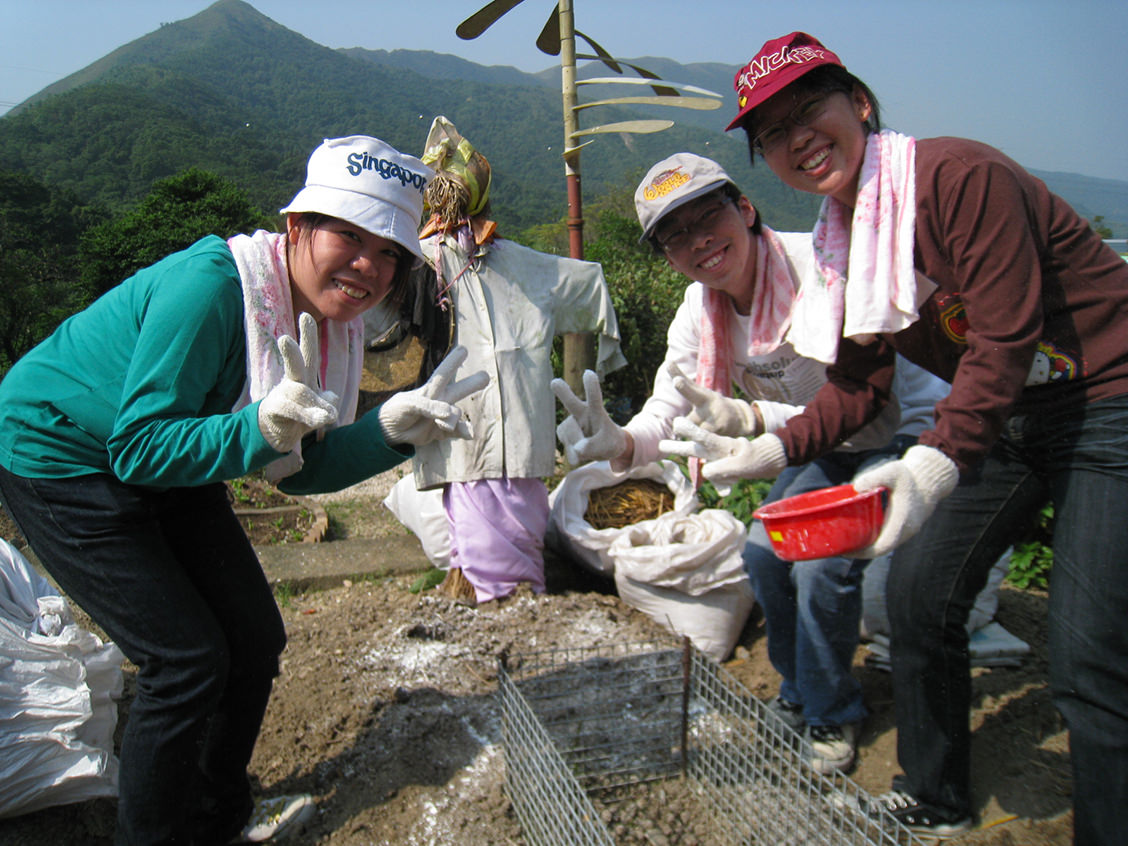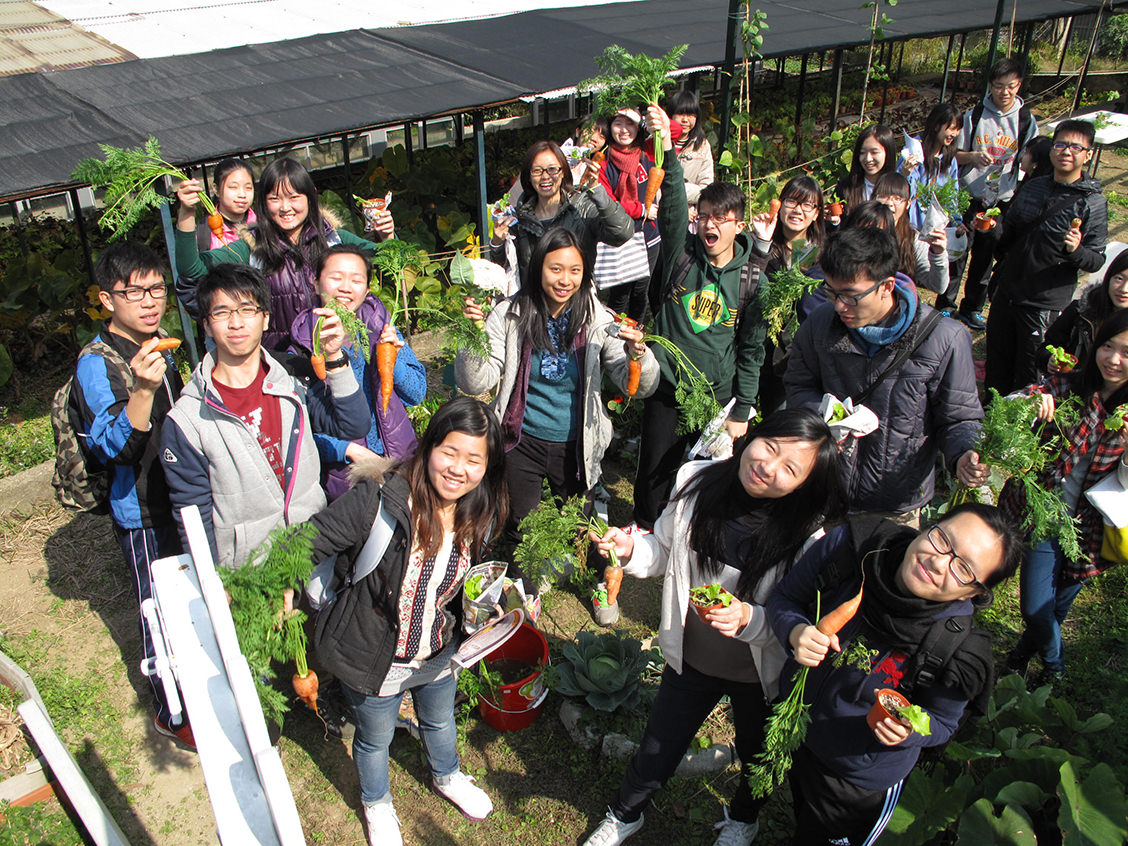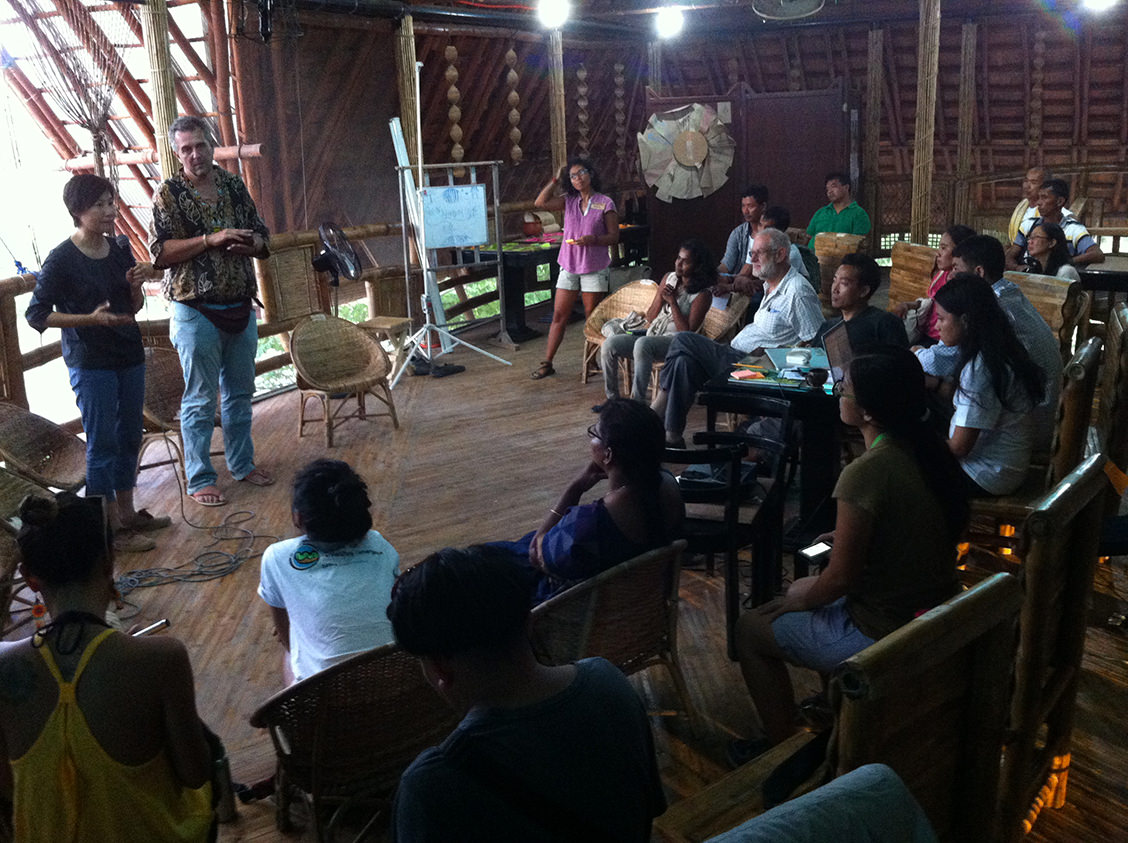
Holding actions aim to hold back and slow down the damage being caused by the dominant socio-economic system of Business as Usual. The goal is to protect what is left of our natural life-support systems, rescuing what we can of our biodiversity, habitats, clean air, water, forest and topsoil. There are many ways to acts and here are some starting points for transition:
Localize Our Food System

The globalised food system relies heavily on long-distance transport, industrialized operations, and extensive input of synthetic fertilizers and pesticides. The fossil fuel energy consumed in moving food far exceeds the food energy provided by the food and accounts for 1/3 of today’s global greenhouse gas emissions. This illogical system is coming to an end now together with the supply of cheap oil. There is an urgent need for us to rebuild a localized system to guarantee food security.
Act NOW
- Choose fairly traded organic food which has travelled the least distance.
- Support local agriculture by joining a Community Supported Agriculture (CSA) scheme.
- Purchase food at a local Farmers’ Market.
- Support small local food stores and food production initiatives.
- Preserve traditional food culture and cuisine.
Diet for a Mindful Society

The World Health Organization tells us that about 20 million children under five years old, worldwide, are severely malnourished, leaving them vulnerable to illness and early death. At the same time, animals raised for food are fed with more than 80% of the corn and more than 95% of the oats produced by the US, which are grown largely with the heavy input of machinery and fossil fuel by-products in the form of fertilizers and pesticides. Additionally, many people in affluent countries over-eat. Four out of ten adults between the ages of 18 and 64 in Hong Kong are overweight or obese.
Act NOW
- Eat less meat and more fresh, seasonal, locally-grown organic produce
- Cook your own food lightly and eat at home more often
- Never waste food, and compost organic waste
- Refuse disposable utensils and food packaging
Mindful Consumption
According to the study of the Global Footprint Network, humanity would need the regenerative capacity of 1.7 Earths to provide what we need from nature. Hong Kong’s Ecological Footprint ranks 10th globally – we need 4.2 Earths if everyone adopts Hong Kong’s current lifestyle. Behind our affluent lifestyle, it is the extraction of resources and discharge of harmful chemicals takes place in every step of the life cycle of consumer goods; during the manufacturing process, during transportation to the store, to the consumer, and finally, to the landfill. Compounding the problem is the planned obsolescence of goods, which creates a relentless demand for new clothes, the latest electronics and all other 'must have' consumer items.
‘Mindful consumption is the way to heal ourselves and to heal the world.’
Thich Nhat Hanh

Act NOW
- Take purchasing decisions seriously. Pause before you buy something - put it off for a week or so; come back to it at a later time and see if you still really need it.
- Donate what you don’t need (Freecycle).
- Buy used goods when you can.
- Purchase goods that are durable, useful, beautiful, practical, trustworthy, and simple.
- Take care of and repair the goods you own to extend their life.
- Choose to buy locally made products from small locally-owned shops.
- Support local enterprises with social and environmental goals, and fair trade goods.
- Be cautious about the product-life-cycle when buying – how a product is made, used, and disposed of after use all matter.
- Spend more time in nature and interacting happily with people.
- Always bring your own shopping bag (BYOB)
Direct Energy Use
Hong Kong, renowned as the Pearl of the Orient, is famous for the lights that burn brightly around the clock. According to the Hong Kong Energy End-use Data published by Electrical & Mechanical Services Department in 2017, residential sector of Hong Kong consumed 60,214 TJ of energy with 42,368 TJ being electricity. The energy and electricity consumption increased by 10% and 18.3% for the period of 2005-2015 respectively. The electricity consumption per capita increased at an average annual rate of 1%. The consumption of energy generates a large amount of greenhouse gas (GHG) emission in Hong Kong. In 2015, the total GHG emission in Hong Kong was 41,600 kilotonnes CO2-e, around 90% of which originated form the consumption of energy.
Act NOW
- Seek energy-free alternatives first.
- Save energy – it is the most effective (and cheapest) strategy to cut our reliance on fossil fuel.
- Conduct a simple audit at home and at your workplace to find out how electricity is used, as well as ways to reduce energy consumption
- Make use of FREE renewable energy – drying clothes by hanging, and reading by daylight are examples.
- Choose appliances and homes with high energy-efficiency.
- Over one-fifth of our energy is used in air-conditioning - you can cut it down by closing windows, setting the aircon at 26 degrees and supplementing this with a fan, and installing double glazing.
Rethink Transport
In 2019, the climate campaigner Greta Thunberg chose to sail to a UN climate conference in New York in a zero-emissions yacht rather than fly - to highlight the impact of aviation on the environment.
According to the calculation from the International Civil Aviation Organization (ICAO). An economy-class return flight from Hong Kong to Vancouver emits an estimated 0.82 tonnes of CO2 per passenger. That's equivalent to 15% of the average annual emissions for someone in Hong Kong.
While most sectors of the economy claiming to grow greener with renewable energy, for example - aviation's proportion of total emissions is set to rise. According to the International Air Transport Association, aviation contributes about 2% of the world's global carbon emissions, and it predicts passenger numbers will double to 8.2 billion in 2037.
Act NOW
- Cut your air miles and non-essential trips! Spend more vacations relaxing and exploring nature in Hong Kong
- Save fuel on every journey whenever possible by taking public transport and car pooli

